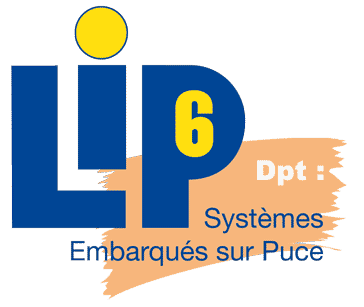Changes between Version 42 and Version 43 of WikiStart
- Timestamp:
- Aug 21, 2012, 5:28:39 PM (13 years ago)
Legend:
- Unmodified
- Added
- Removed
- Modified
-
WikiStart
v42 v43 16 16 The design of ALMOS kernel has a distributed approach articulated around objects named cluster-managers. The goal is to reduce the contention on the ressources and to increase the locality of the kernel's memory access when refering to its data-structres. A cluster-manager is a manager of hardware resources of a hardware NUMA node (mainly cores and physical memory). A cluster-manager can locally supply its homed threads with any type of memory-objects including physical pages and kernel-level data-objects. A cluster-manger contains a per-core mangers each of which has its own events manger and a multi-policies scheduler server. In this distributed scheme, the kernel has no global-state notion of resources. Instead it has a decentralized approach to discover from where to allocate the requested resources in respect to the locality of memory access. This decentralized mechanism and its related policies are implemented in the DQDT (Distributed Quaternary Decision Tree). The DQDT is a wait-free mechanism based on a set of resources-usage indicators and integrates the locality awareness in all kernel decisions regarding to the tasks/threads placement, memory allocation and cores load-balancing. It constitutes a common kernel-level framework to build strategies in order to manage the resources of other kernel sub-systems like files and I/O. 17 17 18 The kernel of ALMOS replicates its code in each cluster by creating a per-cluster kernel-process. The threads of a cluster-manager are attached to its local kernel-process. The kernel of ALMOS has a hybrid notion of threads which is based on a new organization of processes virtual address space. This new organization enables the kernel to replicate both the pages-tables and the application's code and therefore enforcing the locality of the per-core TLBs and I-cache misses. ALMOS threading model is compatible with PThreads standard and it allows the kernel to provide sa native support to PGAS (Partitioned Global Address Space) programming model found in HPC oriented languages like UPC (Unified Parallel C).18 The kernel of ALMOS replicates its code in each cluster by creating a per-cluster kernel-process. The threads of a cluster-manager are attached to its local kernel-process. The kernel of ALMOS has a hybrid notion of threads which is based on a new organization of processes virtual address space. This new organization enables the kernel to replicate both the pages-tables and the application's code and therefore enforcing the locality of the per-core TLBs and I-cache misses. ALMOS threading model is compatible with PThreads standard and it allows the kernel to provide a native support to PGAS (Partitioned Global Address Space) programming model found in HPC oriented languages like UPC (Unified Parallel C). 19 19 20 20

